SUMMARY
This is AI generated summarization, which may have errors. For context, always refer to the full article.
![[Ilonggo Notes] The gentle ravages of dementia](https://www.rappler.com/tachyon/2021/06/TL-ilonggo-notes-1280.jpg)
I remember clearly a phone call to my mother a little over a decade ago, when she repeated the phrase, “May sunog sa Makati kahapon” several times in the course of a 15-minute conversation. I said to myself, “Her memory seems to be slipping…” She was then in her eighties.
My mom turns 94 this year. She graduated high school valedictorian, and at the top of her Pharmacy class at the former Colegio de San Agustin in 1951. Placing sixth in the national board examinations, she taught at the Colegio right away, and was sent for a Master’s degree in Manila. Mom and my Dad, a doctor, married in 1956, and got down to the business of raising a family in Iloilo. I was out first, and in a decade, there were seven of us kids.
Mom worked her whole life at the University, teaching for over 45 years, eventually becoming Dean of the College of Pharmacy and Medical Technology. Appointed Dean Emeritus on her retirement from teaching, she was promptly rehired for another 10 years to head the Human Resources Department, the highest ranking lay official of the University.
Mom was always well known for her excellent memory; as Dean of the College, during the annual commencement exercises, she would be known for not reading names of graduates listed in the souvenir program, but instead looking at each graduate waiting at the foot of the stage, and calling out their names without fail. One student publication even wrote an article about “Our Dean and her wonderful memory.” Alumni would be astounded by how Mommy could remember them even if they had graduated over 50 years ago.
Leaving Iloilo in 1983, and later working overseas, meant that I didn’t spend very much time with Mom and Dad after I turned 25. Except for a two-year spell in 1986-87, I have been based elsewhere for over 35 years, returning only intermittently for holidays. I “semi-retired” in early 2020, days before the pandemic started, and returned to Iloilo, once again living at home with my mom, my sister, brother-in-law, nephews, and long-time helpers.
During semi-annual visits home from 2014, I had seen a gradual deterioration in Mom’s memory and cognition. The daily rosary which we used to pray every night had been largely forgotten; she recited prayers from memory but no longer called us to pray with her. She used to wake up at 4:30 am for a daily mass, walking around 250 meters from our house to the Dominican sisters’ chapel, but she started sleeping through this. Sometimes she would wake up then start to dress up as if to go out.
It now takes a long time for her to finish a meal, sitting at the table for hours. The meticulous details she used to keep recording and compiling – bank statements, tax receipts, etc. – she no longer minds with. Her conversations are intermittent, and usually you have to initiate them, trying to ask her questions or jogging her memory. Sometimes she just looks blankly if you ask her something.
She forgets things she did a minute ago, but her memory for past events remains good. Sometimes she fails to recognize my sister, and some of her own grandchildren, and will refer to herself in the third person when looking at old photos. From reading newspapers, she began merely scanning headlines, and now she cannot even notice dates or keep track of time.
While you know what she forgets, you don’t know what she remembers.
Dementia, according to the World Health Organization, is a syndrome – chronic or progressive – in which there is deterioration in cognitive function (i.e. the ability to process thought) beyond what might be expected from normal ageing. It affects memory, thinking, orientation, comprehension, calculation, learning capacity, language, and judgment. Consciousness is not affected. Dementia results from a variety of diseases and injuries that primarily or secondarily affect the brain, such as Alzheimer’s disease or stroke.
Dementia affects each person differently. Signs and symptoms occur in stages, and the early stage may be missed because of the gradual onset, or because there is an assumption that this is part of growing old, i.e., “having a senior moment.” Over time, signs and symptoms become clearer, with more forgetfulness, communication difficulties, wandering, and needing more help with personal care. At late stages there may be complete dependency and inactivity.
Dementia is not an inevitable consequence of ageing. Young onset dementia (before age 65) accounts for up to 9% of cases. Dementia risk is reduced by regular exercise, not smoking, avoiding harmful use of alcohol, controlling weight, a healthy diet, and maintaining healthy blood pressure, cholesterol, and blood sugar levels. Additional risk factors include depression, low educational attainment, social isolation, and cognitive inactivity. Mom has always been healthy, loved to walk, and never smoked. Her BP, cholesterol, and blood sugar levels are low.
Whatever activity gives Mom pleasure or a sense that she’s doing something, we try to ensure her safety and minimize the likelihood of injury as she does them. Surfaces are kept even so that she does not need to step up and down, to prevent stumbling. In the shower and toilet, there are non-slip mats and guard rails to hold onto. One favorite pastime is to pick up fallen leaves one by one from our aratiles tree in the front yard, so she has a gadget to help pick up things so she does not need to bend over. That can keep her occupied for hours, as long as it is not raining or too hot outside; it is her main exercise now.
On special occasions and because of COVID-19, the family goes out to lunch, and Mom enjoys that, too, reading out loud the signs and names of stores she sees along the way, and getting though her plate much faster. Back at home, there are a range of photo albums she can peruse over and over, when she gets bored with or finishes her “assignment” – which is to take out malunggay or alugbati leaves one by one from their stalks, or separate little stones and palay from a bowl of rice grains. She can do these activities for hours and may even neglect her meals. Sometimes she still watches TV but can get bored after a while. Ever a conserver of energy, she may turn off switches because of the blinking pilot lights.
I consider myself fortunate and blessed to be with Mom in her twilight years, since Dad passed 10 years ago, a few months short of their 55th wedding anniversary. Her siblings, most former classmates, friends, and contemporaries are gone. She’d heave a long sigh, with a momentary pause, when told that someone she knows has passed away recently.
I treasure our being together, the occasional short conversation. When I say, “So-and-so sends their regards,” her usual reply is, “Where did you see each other?” Say a name, and she usually says, “Yes, I remember them.” I get pleasure just being able to greet and see Mom every day. I’d sit at the table sometimes, wondering, “What is Mom thinking?“
One cannot avoid a tinge of sadness witnessing her gradual decline. I suppose the most important thing for Mom is to feel safe, comfortable, respected, and loved, in her own home with familiar faces around her, even as the world around her shrinks, and memories vanish into the horizon. – Rappler.com
Vic Salas is a physician and public health specialist by training, and now retired from international consulting work. He is back in Iloilo City, where he spent his first quarter century.
Add a comment
How does this make you feel?
![[Science Solitaire] 12 ways NOT to lose yourself as you grow older](https://www.rappler.com/tachyon/2021/06/ss-not-lose-yourself-sq.jpg?fit=449%2C449)


![[Ilonggo Notes] Putting the spotlight on Ilonggo and regional cinema](https://www.rappler.com/tachyon/2024/04/Screenshot-2024-04-07-at-2.04.59-PM.png?resize=257%2C257&crop=321px%2C0px%2C809px%2C809px)

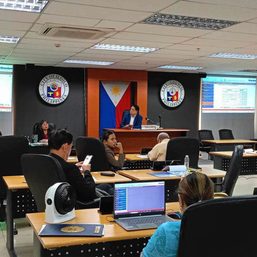
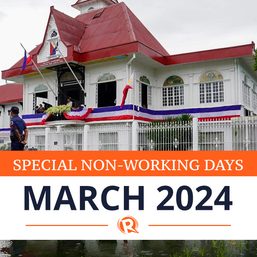

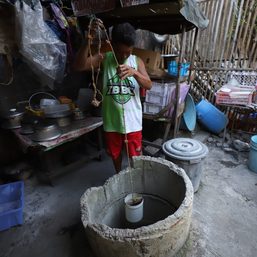

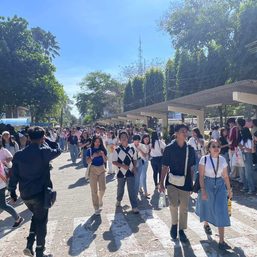
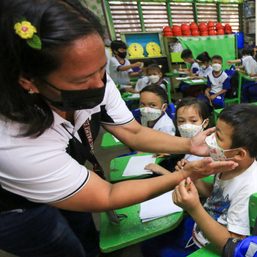
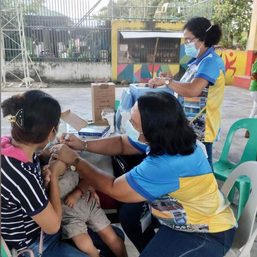
![[Free to Disagree] Sabwatan ng mga doktor at drug companies](https://www.rappler.com/tachyon/2024/04/tl-sabwatan-doktor-drug-companies-April-22-2024.jpg?resize=257%2C257&crop=292px%2C0px%2C720px%2C720px)
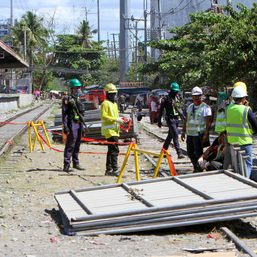

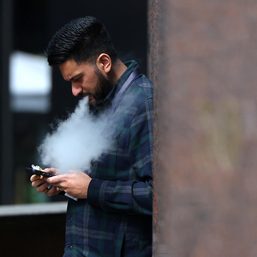
There are no comments yet. Add your comment to start the conversation.